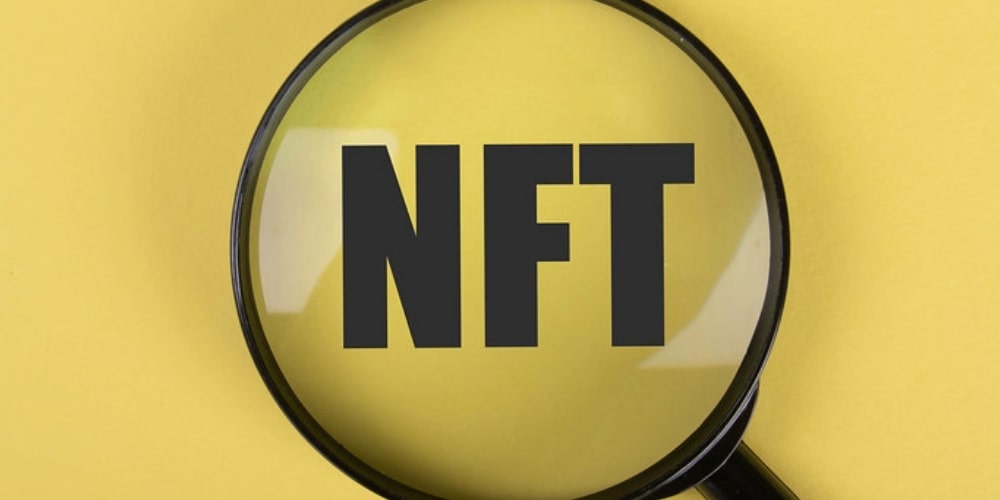Reasons Why You Should Avoid Play-To-Earn Online Games
Posted: June 26, 2024
Updated: June 26, 2024
Afew years ago, NFTs were all the rage. However, you didn't have to be the brightest light on the Xmas tree to see this was not going to end well. The new industry was filled with scams, rug pulls, pump and dumps, and sock puppets that only poor suckers were convinced there was money to be made in ideas like play-to-earn gambling with NFTs.

Have you stumbled upon play-to-earn (P2E) games in your search for new adventures? These games flip the script by rewarding players with real-world value tokens and NFTs for completing challenges. While the chance to earn money while playing sounds enticing, there’s usually a catch. You might need to invest upfront to purchase in-game assets. As P2E represents a new frontier in gaming, let’s delve deeper to give you an overall view of why play to earn shone so brightly, yet so briefly. However, before we start, it’s important to know that we don’t recommend playing at any NFT or crypto-based gaming platform.
What Were Play To Earn Games?
Play-to-earn games were like a blockchain playground, merging gaming with cryptocurrencies, NFTs, and DeFi to keep you engaged. Imagine earning tradable digital assets by playing a video game! These assets could even be sold for crypto and potentially converted to real money. Plus, the decentralised nature of P2E means the developer didn’t hold all the cards. The general idea is that players could collaborate and trade to create value together, though the specifics vary depending on the game. However, we now know that the decentralised nature of these gaming platforms meant the platform itself had a huge advantage over the player. Remember there was no independent auditing to check for fair games and rules, or payouts, from companies like eCOGRA.
What Made P2E Games Popular?
At the time, play-to-earn games were exploding in popularity for a reason: who wouldn’t want to turn playtime into real income? Otherwise known as pure greed! This fusion of fun and desire for moolah taps into our twin desires for entertainment and earning potential. For a while this made P2E games a hot new trend. After all, P2E games offered a surprisingly diverse experience. Players tackled challenges, completed tasks, collaborated or battled others, and climbed the ranks – all while having fun, earnings aside! But the six million dollar question is who was really making any money here? Spoiler alert, it wasn’t you!
Can You Earn Money With Play-To-Earn Games?
P2E games kept players hooked with the potential to earn valuable digital assets. Things like tradable items such as skins, avatars, weapons, and even virtual land. Apparently, it was all convertible into real-world cash.

That is, if you could find someone willing to buy them for real cash. Unlike some older blockchain games, play-to-earnE offered a solid in-game economy and rewards based on effort, not just luck. Fueled by the crypto craze, play-to-earn games were taking centre stage. They capitalised on the popularity of crypto and NFTs, offered an accessible entry point – you could potentially earn real money while having fun! The booming market for crypto casinos hinted at a bright future for P2E games, but did they achieve the same level of mainstream casino success? No, they didn’t. Not even close.
How Did P2E Games Work?
Imagine sinking hours into a game with nothing to show for it. That’s the story of play-to-earn games in their efforts to redefine the reward system. Unlike traditional games at top online casino sites in the UK like Bet365 Casino, where achievements stay locked within the game, P2E lets you convert your success into real-world value. You could earn cryptocurrencies, NFTs, and other useless digital assets that could be traded or sold for cash.
This economic incentive added a whole new layer to the gaming experience, attracting players who wanted to be rewarded for their time and effort. While some P2E games are free to play, the vast majority require an initial investment. Regardless, the time commitment remained significant. But hey, if you’re already planning on grinding through a game, P2E offers the potential to turn that playtime into real income. This financial aspect had a global appeal, in particular among young gamers, making P2E a hot trend.
Don’t Believe The Hype
P2E games went beyond just individual achievement. To sell it more, they claimed that collaboration was key to progressing in these games. So players were encouraged to form guilds, join communities over Discord, and embark on quests together. This social aspect aligned with the whole metaverse concept, where players interact in a shared virtual world. While some traditional games offered multiplayer experiences, play-to-earn emphasised collaboration as a core mechanic. Both traditional and P2E games present challenges and problem-solving opportunities, but the focus differs. Traditional games often hone hand-eye coordination or strategic thinking, while P2E challenged players to make critical decisions with limited information and face the consequences – a skill set they claimed was relevant for the real world as well.
The Role Of NFTs In Play To Earn Games
In the world of play-to-earn games, NFTs (non-fungible tokens) were like the golden tickets – unique digital assets you could collect and potentially turn into real-world value. Forget cookie-cutter in-game items; these NFTs might be one-of-a-kind characters, coveted skins, or any virtual item with a unique identity. Unlike traditional game rewards that could be cashed out, NFTs were stored on a blockchain, a secure digital ledger, guaranteeing their authenticity and ownership. Earning NFTs in P2E games came in various flavours. You might have acquired them through staking (locking up your crypto assets), farming (completing repetitive tasks), or conquering challenging in-game objectives. Unfortunately, all these things had no real value or use, meaning you couldn’t sell them for real cash.
P2E Games With NFT Ownership
The blurb promised that with P2E games, NFTs (non-fungible tokens) were more than just in-game trinkets – they’re yours to truly own. Forget items disappearing when a game shuts down; these blockchain-backed collectibles are yours to keep, forever. Whether you buy them, find them, or win them, these unique digital assets become part of your digital inventory.

The power lies in your hands: customise them, level them up, or, for the truly strategic players, raise their value and sell them on in-game marketplaces or even wider NFT exchanges. Today, all have lost 99% of their so-called value. Simply because they had no value to begin with.
What Is GameFi?
GameFi, a blend of “game” and “finance,” was the brainchild of Andre Cronje (Yearn Finance CEO) from 2020. It utilises blockchain tech, NFTs, and familiar gaming mechanics to create a fun and potentially profitable experience. Imagine a world where you own your in-game items (NFTs) and can influence the game’s future through community governance (voting on changes). This is the world of GameFi, where play meets finance in a decentralised way. As we can see, that was a horrible world which has thankfully sunk, along with many of the scammers who perpetuated their gaming schemes at the cost to regular gamblers.
The Demise Of P2E Gaming
The play-to-earn phenomenon had its roots in 2017 with the launch of CryptoKitties, a blockchain game on the Ethereum network. This, alongside the rise of Ethereum casinos, marked the beginning of a trend that exploded during the pandemic. Investors poured a staggering $3.6 billion into crypto gaming startups in 2021 alone, fueled by the belief that gaming could be the key to widespread blockchain adoption. However, despite the surge in popularity, P2E games faced challenges that threatened and finally broke their long-term viability.
The biggest hurdle is the disconnect between the desire to earn and genuine enjoyment of the game. Oh, and the sheer number of scams. On another note, critics argued that many play-to-earn games prioritise earning mechanics over compelling gameplay, alienating traditional gamers who might be curious about the potential income streams. Additionally, concerns surround the cost and fairness of NFTs. For example, expensive NFTs could grant in-game advantages, creating a pay-to-win scenario that discouraged new players. But all this is now moot.
Conclusion – The Death Of Play-To-Earn
In 2024, the whole NFT market, along with metaverse projects, have collapsed to pretty much zero. Many “investors” got burnt, with huge sums of money lost to “rug pulls”, “pump and dumps”, and massive crypto scams. In many ways, play to earn was nothing more than a pipe dream designed to fill the pockets of platform owners. Due to the supposed anonymous nature of crypto, and according to online casino news in the UK, many of those who made those bets were actually underage players. Just like the metaverse, NFTs were nothing more than a scam designed to part players with their cash.
It worked on the “greater fool theory”, where there’s always another sucker just around the corner. You may still find some play-to-earn games. However, we strongly advise you to stay clear of them. In truth, you’re better off sticking to fully and legally licensed online casinos like Bet365 Casino. After all, there’s a reason why traditional casino gambling persists, whereas bullshit NFT-based and crypto casinos and gambling have all but disappeared.
Click here to try the live casino at bet365 Casino












